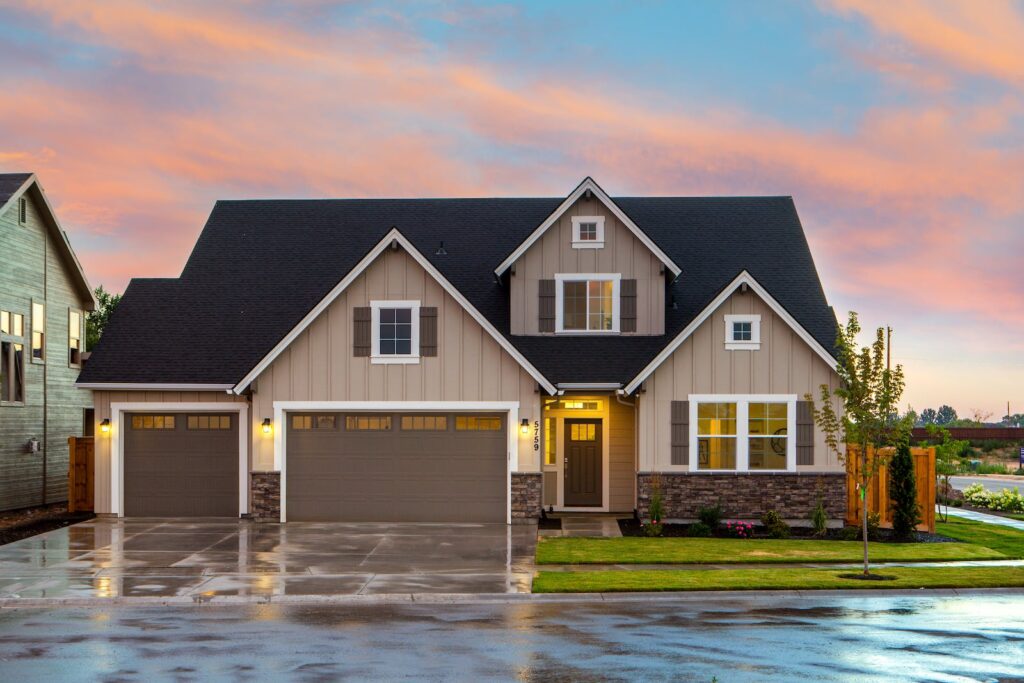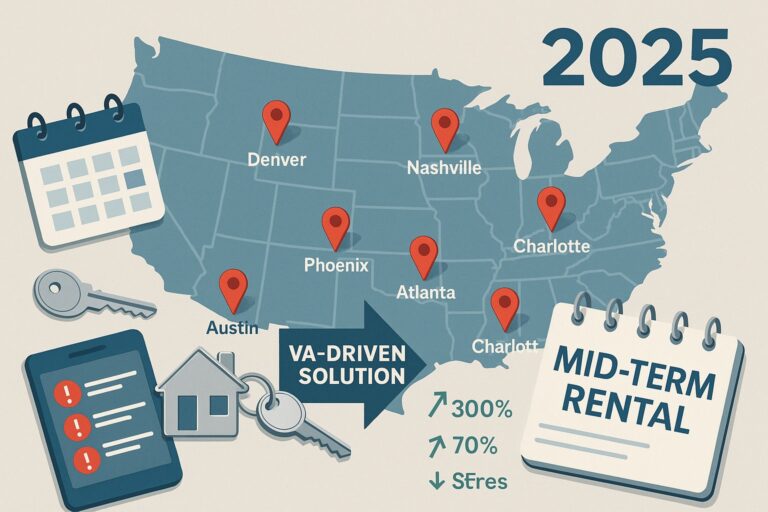In a rental market often divided between short stays and year-long leases, there’s a new player that’s quickly gaining attention—mid-term rentals. If you’re wondering what makes these properties different, and why they might be your next best investment, you’re in the right place.
What Are Mid-Term Rentals?
Mid-term rentals (MTRs) are fully furnished properties available for stays of 30 days or longer. These rentals sit between short-term vacation stays and long-term residential leases. MTRs combine the flexibility of short-term options with the consistency of longer-term commitments.
Rental Type Breakdown:
- Short-Term: 1–29 days (e.g., Airbnb, Vrbo)
- Mid-Term: 30+ days (ideal for traveling professionals, relocations)
- Long-Term: 12+ months (standard leases for residents)
Professionals, families relocating, or individuals in transition often choose MTRs. They need temporary, comfortable homes without committing to a year-long lease or moving week-to-week.
Why Are Mid-Term Rentals in Demand?
Mid-term tenants are typically:
- Traveling medical professionals (like nurses)
- Remote workers and digital nomads
- Families relocating, renovating, or between homes
- Academics and graduate students
- Insurance clients displaced by disasters
These renters are reliable, professional, and low-impact. They stay longer than vacationers and care for the property more than someone just passing through. The result? Fewer repairs, less turnover, and stronger communication.
Mid-Term Rental Benefits
Quality Tenants
Mid-term tenants aren’t party-seeking vacationers. They’re here to live and work. That often means:
- Fewer maintenance issues
- No short-stay wear and tear
- Professional communication
Higher Cash Flow Than Long-Term Leases
MTRs typically rent for 1.5x to 2x what you’d earn with long-term leases. Unlike short-term rentals, you don’t need to constantly clean, re-stock, or market for weekly bookings.
Reduced Vacancy and Effort
One tenant could fill three or more months. You don’t need daily bookings to keep your calendar full. Just 4 tenants per year can bring full occupancy.
How to Price Mid-Term Rentals
Pricing depends on:
- Location
- Season
- Amenities
- Property size
MTRs bring more cash flow than long-term rentals without the costs of short-term setups. While nightly rates are lower than STRs, your margins improve due to fewer turnovers and lower operational effort.
Protect Your Property
Tenants stay longer and treat the property like home. You avoid:
- Weekly furniture rearrangement
- Holes from new wall art every month
- Messy short-term parties
Plus, you gain regular access for maintenance without waiting a full year.
Avoid Short-Term Rental Regulations
Many cities and HOAs have limited or banned short-term rentals. MTRs are typically exempt because they:
- Don’t cause frequent turnover
- Attract quiet, working professionals
- Are usually 30+ days, which avoids hotel taxes and nightly rules
List Your Property on MiniStays
Platforms like MiniStays specialize in mid-term rentals. Unlike traditional short- or long-term sites, we focus only on tenants looking for monthly furnished stays.
Why MiniStays Works:
- Free to list and low booking fees (Only 2%!)
- Full control of listings and rates
- Direct tenant contact
- Trusted by thousands of landlords
Other platforms treat MTRs as an afterthought. At MiniStays, mid-term is our main focus.
Resources for New MTR Landlords
We offer tools to help you succeed:
- Tenant screening
- Secure payments
- Cancellation policies
- Rental insurance tools
- Photo guides
- A growing landlord and guest community
Whether you’re new to mid-term investing or growing your portfolio, our resources make it simple to get started.
Final Thoughts
Mid-term rentals are the future of flexible housing. They offer high returns, professional tenants, and steady bookings. If you’re ready to reduce turnover, increase income, and enjoy better renters—mid-term is the move.Explore our tools, list your property, and tap into the growing demand for mid-term housing. Visit MiniStays.com to get started today.



